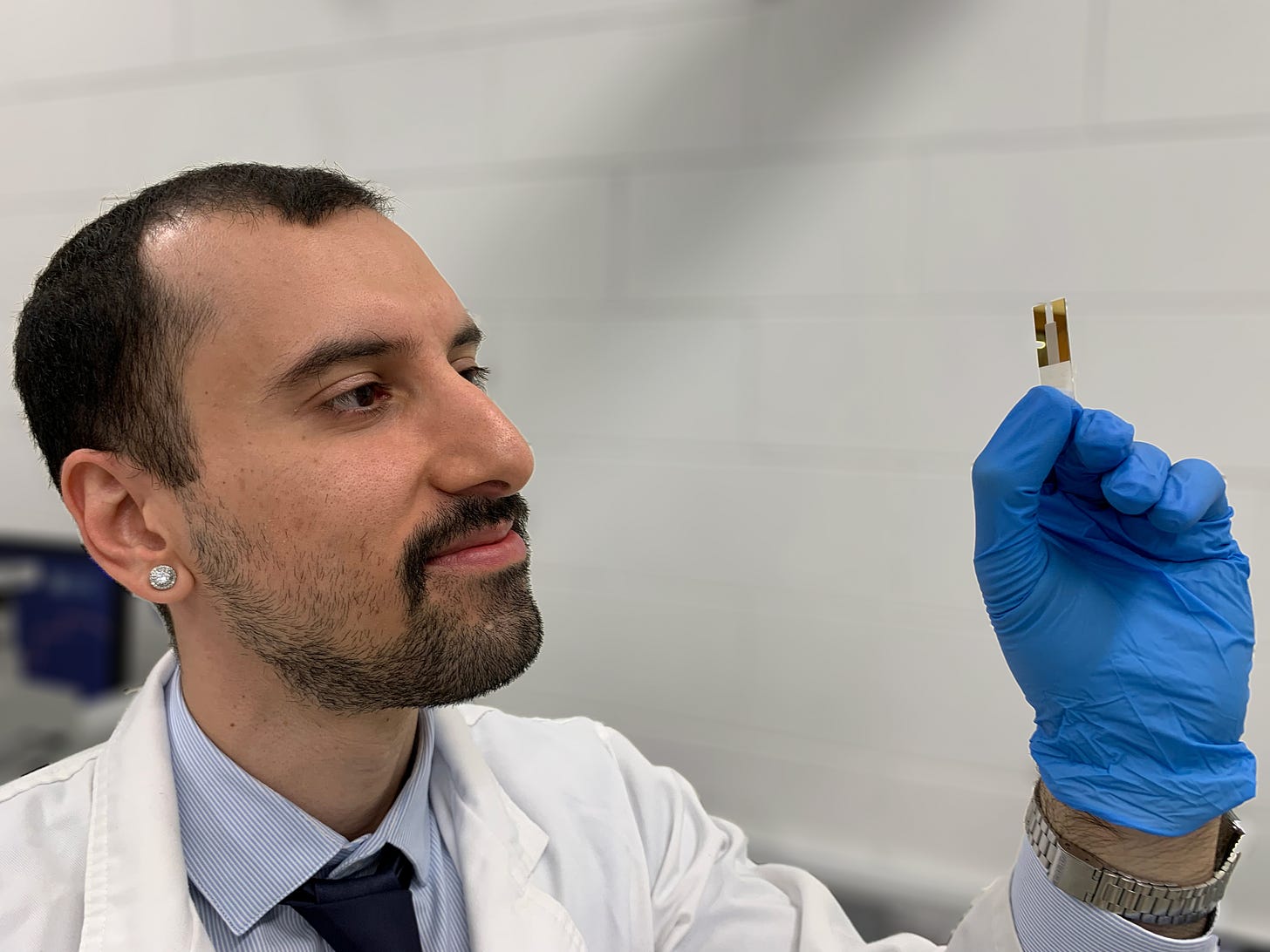RMIT University has made a step towards making mobile phone batteries that don't rust.
A new idea from engineers at RMIT University could lead to mobile phone batteries that last up to three times longer than the ones we have now.
The team says that instead of throwing away batteries after two or three years, we could make batteries that can be recycled and last up to nine years by using high-frequency sound waves to remove the rust that slows down the batteries.
Only 10% of used batteries for handheld devices, like cell phones, are collected for recycling in Australia, which is low compared to the rest of the world. The other 90% of batteries end up in landfills or are thrown away in the wrong way, which is very bad for the environment.
The high cost of recycling lithium and other materials from batteries is a big reason why they aren't used again, but the team's idea could help solve this problem.
The team is working with a nanomaterial called MXene, which is part of a group of materials that they say could replace lithium in batteries in the future.
Leslie Yeo, Distinguished Professor of Chemical Engineering and lead senior researcher, said that MXene was similar to graphene in that it had high electrical conductivity.
"Unlike graphene, MXenes can be shaped in a lot of different ways," said Yeo from RMIT's School of Engineering. "This means they could be used in a lot of different ways in the future."
He said that the biggest problem with using MXene was that it rusted easily, which stopped it from conducting electricity and made it useless.
Yeo said, "To solve this problem, we found that sound waves with a certain frequency can remove rust from MXene, bringing it back to a state that is close to its original state."
He said that one day, the team's idea could be used to refresh MXene batteries every few years, which could make them last up to three times longer.
"The ability to make MXene last longer is key to making sure it can be used to make electronic parts that can be sold," Yeo said.
Nature Communications has written about the research.
How this new idea works
The biggest problem with using MXene, according to co-lead author and PhD candidate Hossein Alijani, is that rust forms on its surface in humid environments or when it is suspended in watery solutions.
"It's hard to get rid of surface oxide, which is rust, especially on this material, which is much, much thinner than a human hair," Alijani from the School of Engineering at RMIT said.
"The current ways to stop oxidation depend on coating the material with chemicals, which makes it hard to use MXene in its natural form.
"In this work, we show that rust on an MXene film can be removed by vibrating it at high frequencies for just one minute. Its electrical and electrochemical performance can be restored with this simple step."
How the team's work could be used in the future
The team says that getting the rust off of MXene makes it possible for the nanomaterial to be used in a wide range of ways, including energy storage, sensors, wireless transmission, and cleaning up the environment.
One of the senior researchers, Associate Professor Amgad Rezk, said that the ability to quickly return oxidised materials to a state that is almost as good as new was a game-changer for the circular economy.
Rezk from RMIT's School of Engineering said, "Materials used in electronics, like batteries, tend to break down after two or three years of use because rust forms."
"With our method, we might be able to make battery parts last up to three times longer."
What's next?
Even though the idea is interesting, the team needs to work with industry to figure out how to add its acoustics device to the manufacturing systems and processes that are already in place.
The team is also looking into how to use their invention to get rid of oxide layers on other materials, which could be used in sensing and renewable energy.
Yeo said, "We want to work with industry partners so that our way of getting rid of rust can be used on a bigger scale."
Before you go..
You can get RedWires AU for free right now. Your donation, no matter how big or small, will help us keep doing honest journalism. If you care about what we do, please make a donation now to help us plan for the future.
Upgrade your subscription to get the most out of it. Join the growing number of people around the world who believe in the power of independent media.






